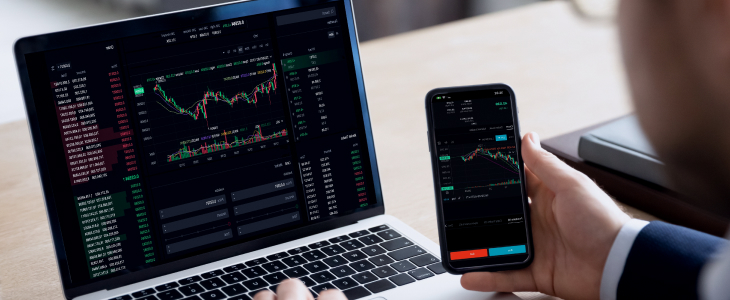
Understanding Forex Trading: A Comprehensive Definition and Guide
Forex trading, an abbreviation for foreign exchange trading, refers to the global marketplace where currencies are exchanged. This market operates around the clock and is known for its high liquidity and volatility. A trader buys one currency while simultaneously selling another, aiming to profit from fluctuations in exchange rates. Proper knowledge and understanding of forex trading can lead to significant financial opportunities. For those seeking effective tools for their trading journey, consider checking out the forex trading definition Best Platforms for Trading.
What is Forex Trading?
The forex market is the largest and most liquid financial market in the world, with a daily trading volume exceeding $6 trillion. Unlike stock markets, which operate in a centralized environment, forex trading occurs over-the-counter (OTC) through a network of banks, financial institutions, brokers, and individual traders globally. As a decentralized market, it enables currency trades to happen electronically, facilitating global commerce and investment.
The Mechanics of Forex Trading
Forex trading involves the buying and selling of currency pairs. Each currency pair consists of a base currency and a quote currency. For example, in the USD/EUR pair, USD is the base currency while EUR is the quote currency. Traders speculate on whether the base currency will strengthen or weaken against the quote currency. If a trader believes that the value of the base currency will increase, they will buy the pair; if they believe it will decrease, they will sell it.
Types of Forex Analysis
Traders use various methods to analyze the market and make informed decisions. The primary types of analysis are:
- Technical Analysis: Involves analyzing historical price movements and using charts and indicators to predict future price actions.
- Fundamental Analysis: Focuses on economic indicators, news events, and financial policies that can affect currency values.
- Sentiment Analysis: Measures the mood of the market, gauging whether traders are feeling bullish or bearish about specific currencies.
The Benefits of Forex Trading

Forex trading offers several advantages, making it an attractive option for both novice and experienced traders:
- High Liquidity: The forex market is known for its high liquidity, meaning traders can enter and exit positions with ease.
- 24-Hour Market: The forex market operates 24 hours a day, allowing traders to participate in the market at any time, regardless of their location.
- Leverage: Brokers provide leverage, enabling traders to control larger positions with a smaller amount of capital. While this can amplify profits, it also increases the risk of losses.
- Diverse Trading Options: There are numerous currency pairs to trade, allowing traders to diversify their portfolios.
Risks Associated with Forex Trading
While forex trading can be profitable, it also comes with significant risks:
- Market Volatility: Currency prices can change rapidly, leading to potential losses for traders.
- Leverage Risks: While leverage can enhance profits, it can also lead to sizable losses, sometimes exceeding the initial investment.
- Emotional Decision-Making: The psychological aspect of trading can lead to poor decision-making, particularly during periods of high stress.
Essential Strategies for Successful Forex Trading
To navigate the complexities of forex trading effectively, traders should consider implementing various strategies:
- Risk Management: Setting stop-loss orders and managing trade sizes can help mitigate potential losses.
- Creating a Trading Plan: Developing a clear trading plan that outlines goals, risk tolerance, and strategies can enhance discipline and consistency.
- Continuous Learning: The forex market is ever-evolving, and staying informed about market trends, news, and economic indicators is crucial for success.
Getting Started in Forex Trading
For those interested in entering the forex market, here are the initial steps to consider:
- Educate Yourself: Invest time in learning about forex trading, including its mechanics, strategies, and terminology.
- Choose a Reputable Broker: Look for a regulated and trustworthy broker that offers the tools and services you need.
- Open a Demo Account: Practice your trading skills in a risk-free environment by using a demo account before trading with real money.
- Start Small: Once ready to trade live, start with a small investment to gain practical experience while managing risks.
Conclusion
Forex trading represents a dynamic and potentially lucrative financial market for traders worldwide. By understanding its definition, mechanisms, risks, and essential strategies, individuals can equip themselves for success in this exciting field. Continuous education, risk management, and a disciplined approach are vital for achieving trading goals and navigating the complexities of the forex world.
